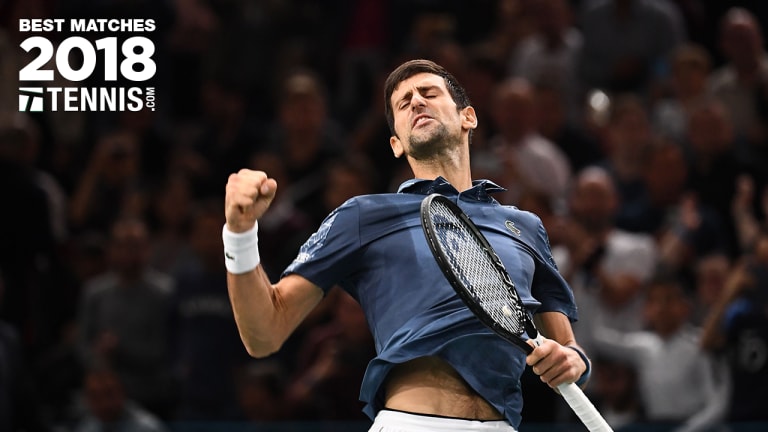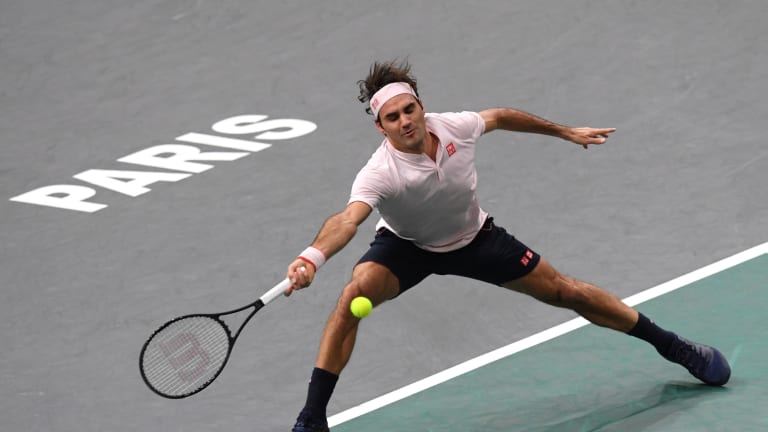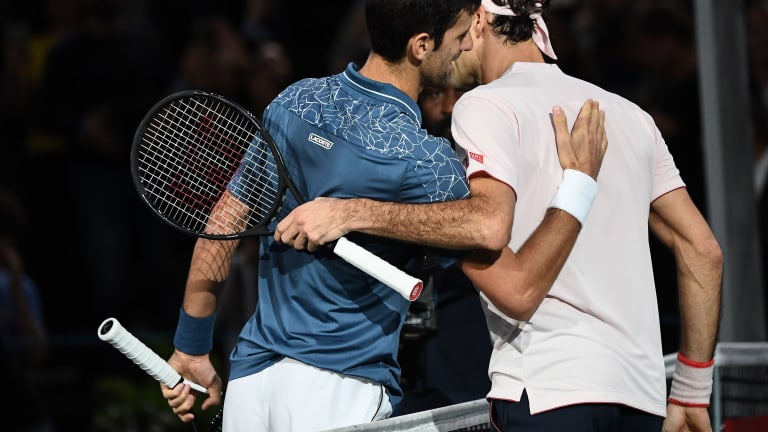There were also several surprising reversals.
In the first-set tiebreaker, Federer went up 6-5, set point, before losing the next three points, and the set, on backhand errors.
At 5-5 in the second set, Djokovic had yet another break point, but Federer responded with a forehand winner that landed on the sideline, and held serve with another inside-out forehand winner.
At 4-4 in the third set, Djokovic had two more break points, but Federer again responded, wiping them away with an ace and a service winner. By that stage, Djokovic could no longer hide his frustration, and he slammed his racquet to the court.
Finally, as has happened before when these two have met, it was Federer who blinked, and who ended the match with a flurry of anti-climactic unforced errors. Down 1-2 in the third-set tiebreaker, he hit a forehand long; at 1-3, he double faulted; at 1-5, he hit a backhand into the net. Only at 1-6 did Federer did pull himself together. He won the next two points, and then, at 6-3, pushed Djokovic into one of the best rallies of the match. With no more tricks up their sleeves or punches left to pull, the two men pounded the ball at each other until Federer finally drilled a backhand into the net.


